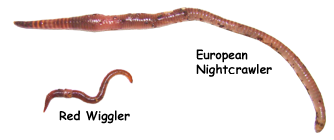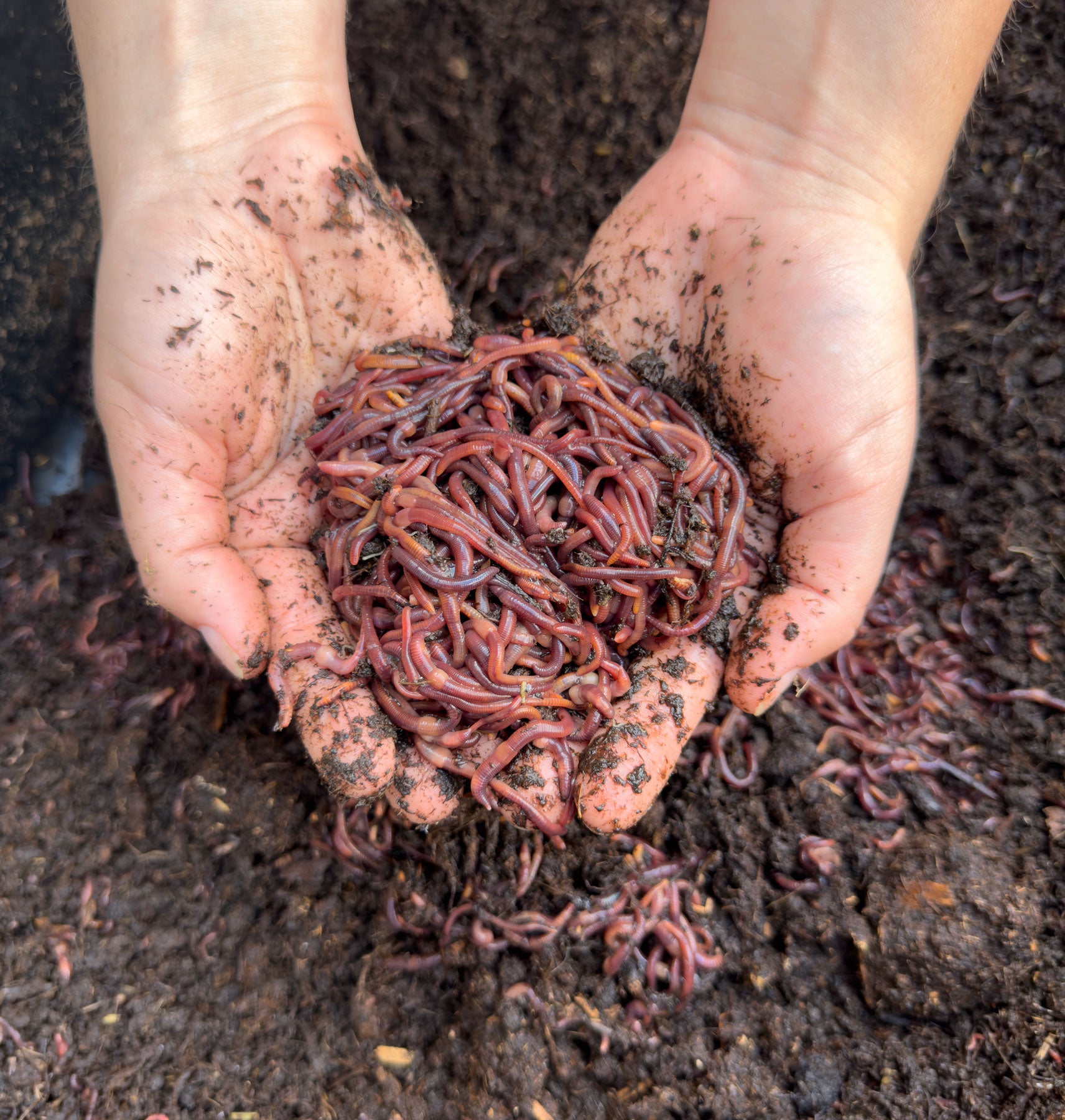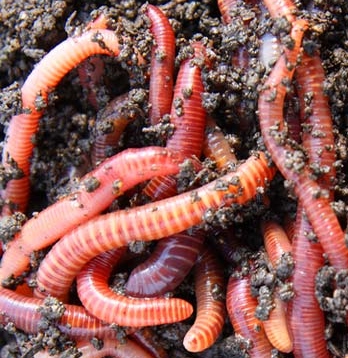Red Wiggler Worms - All-natural Service for Green Composting
Red Wiggler Worms - All-natural Service for Green Composting
Blog Article
Red Wiggler Worms Demystified: Unlocking the Tricks of Vermiculture for Greener Living and Nutrient-Rich Dirt
In the realm of lasting practices for enriching dirt top quality and advertising eco-conscious living, red wiggler worms play a crucial yet frequently overlooked duty. These simple creatures have the exceptional ability to change organic waste into nutrient-rich spreadings that function as a potent all-natural fertilizer. By diving into the globe of vermiculture, one can discover a variety of benefits that expand far past standard composting methods. Recognizing the complexities of looking after these worms, enhancing their environment, and using their castings can bring about a greener way of life and healthier dirt for plants to flourish.
The Duty of Red Wiggler Worms
Red Wiggler worms play a crucial duty in composting systems by successfully damaging down natural matter right into nutrient-rich castings. These ravenous eaters consume a range of natural products, such as kitchen scraps, lawn waste, and paper items. As they feed, the worms' digestive processes break down the raw material into a penalty, dark, and nutrient-dense product referred to as worm castings or vermicompost.
The spreadings generated by Red Wiggler worms are very helpful for dirt wellness and plant development. They are rich in vital nutrients like nitrogen, phosphorus, and potassium, which are important for supporting healthy plant advancement. Furthermore, worm spreadings consist of helpful microorganisms and enzymes that assist enhance dirt framework, boost water retention, and boost nutrient uptake by plants.
Benefits of Vermicomposting

Additionally, vermicompost, the nutrient-rich end product of vermicomposting, works as an outstanding natural fertilizer and dirt conditioner. It enhances dirt structure, enhances soil oygenation, and enhances dirt moisture retention. These properties add to healthier plants with stronger origin systems and much better resistance to pests and illness. Vermicompost also improves the soil with crucial nutrients like potassium, phosphorus, and nitrogen, promoting plant development and overall soil fertility.
In addition, vermicomposting supports sustainable gardening techniques by supplying a chemical-free and all-natural choice to artificial plant foods. Red Wiggler Worms. This environmentally friendly method not only enhances the dirt yet additionally helps in reducing dependence on damaging chemicals, advertising a greener and a lot more lasting method of horticulture
Establishing a Worm Container
When developing a worm container for vermicomposting, appropriate configuration is critical to make certain the success of the composting process. The first step in establishing a worm bin is choosing an appropriate container. This can be a plastic bin or wooden box that supplies adequate space for the worms to walk around and has proper drainage holes to avoid waterlogging. Next off, a bed linens product such as shredded newspaper, cardboard, or coconut coir should be included in the container. This bed linen offers a comfortable environment for the worms and aids preserve moisture degrees.
After adding the bed linens, introduce the red wiggler worms to the container. The worms must then be provided with food scraps such as fruit and veggie peels, coffee premises, and eggshells.
Regularly keep an eye on the moisture degrees and temperature in the worm container to make sure optimal conditions for the worms. With proper arrangement and maintenance, the worm bin will properly transform organic waste right into nutrient-rich garden compost for your plants and garden.
Gathering Worm Spreadings
To efficiently accumulate nutrient-rich worm castings from your vermicomposting system, an organized harvesting approach is vital. When it comes time to harvest the worm spreadings, there are a couple of vital actions to comply with to make certain an effective procedure. To start with, stop adding fresh food scraps away of the worm container for a couple of weeks before collecting. This motivates the worms to move sideways with fresh bedding and food, making it less complicated to scoop out the spreadings from the opposite side.

Troubleshooting Common Issues
Recognizing and dealing with common difficulties that might arise throughout the vermicomposting procedure is crucial for preserving a productive and healthy worm bin. One common concern that vermicomposters encounter is overfeeding. Including excess food scraps can result in a build-up of moisture and level of acidity in the worm container, possibly harming the worms. To avoid this, feed the worms in small amounts, ensuring that the food scraps are effectively broken down before adding extra. One more issue is undesirable odors emanating from the worm container. Foul smells indicate anaerobic problems, normally triggered by overwatering or inadequate air flow. To fix this, adjust the dampness levels by including dry bedding materials like shredded newspaper or cardboard and rise aeration by transforming the bed linen frequently.
Furthermore, if the worm populace is declining or the worms show up unhealthy, maybe as a result of environmental stress factors such as severe temperatures or pH degrees. Keeping an eye on these variables and making required changes is important for the health of the worms. By troubleshooting these typical issues quickly, vermicomposters can make certain a successful and smooth vermicomposting procedure while keeping a thriving worm population.

Verdict
In final thought, red wiggler worms play a critical function in vermiculture by breaking down natural issue into nutrient-rich dirt. Establishing up a worm bin is vital for successful vermiculture, and collecting worm spreadings provides beneficial garden compost for gardening.
As they feed, the worms' digestive system procedures break down the natural matter into a penalty, dark, and nutrient-dense material known as worm castings or vermicompost.
The spreadings created by Red Wiggler worms are highly beneficial for dirt health and wellness and plant development. Including excess food scraps can lead to a buildup of dampness and acidity in the worm container, potentially damaging the worms.Furthermore, if the worm populace is declining or the worms show up unhealthy, it can be due to environmental stress factors such as extreme temperatures or pH levels. Establishing up a worm bin is crucial for effective vermiculture, and gathering worm spreadings offers why not check here beneficial compost for horticulture.
Report this page